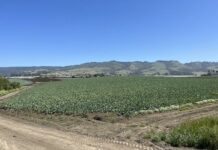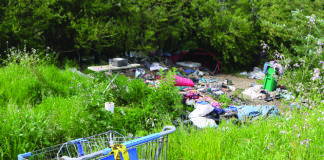WASHINGTON, D.C.—U.S. Secretary of Agriculture Sonny Perdue announced March 17 a collaboration with the Baylor Collaborative on Hunger and Poverty, McLane Global, PepsiCo and others to deliver nearly a million meals per week to students in a limited number of rural schools closed due to COVID-19.
“USDA is working with private sector partners to deliver boxes of food to children in rural America who are affected by school closures,” Perdue said. “Right now, USDA and local providers are utilizing a range of innovative feeding programs to ensure children are practicing social distancing but are still receiving healthy and nutritious food. This whole of America approach to tackling the coronavirus leverages private sector ingenuity with the exact same federal financing as the Summer Food Service Program. USDA has already taken swift action to ensure children are fed in the event of school closures, and we continue to waive restrictions and expand flexibilities across our programs.”
USDA will utilize elements from its summer pilot program in 2019 to deliver food boxes to children affected by school closures due to COVID-19 in rural America. Baylor will coordinate with state officials to prioritize students who do not currently have access to a Summer Food Service Program (SFSP) site and have an active outbreak of COVID-19. Initial capacity is limited, and additional vendors are requested and encouraged to ensure the program can provide food to more rural children as additional schools close. USDA has created a single contact for those who have suggestions, ideas, or want to help feed kids across the country. Email fe*********@**da.gov for information.
“We are grateful to come alongside USDA, PepsiCo, and McLane Global to ensure that children impacted by school closures get access to nutritious food regardless of where they live. We know from first-hand experience that families with children who live in rural communities across the U.S. are often unable to access the existing food sites. Meal delivery is critical for children in rural America to have consistent access to food when school is out. This is one way we, as citizens of this great nation, can respond to our neighbors in need,” said Jeremy Everett, Executive Director, Baylor University Collaborative on Hunger and Poverty.
Chairman of McLane Global Denton McLane said they were proud to take part in the success of the summer Meals-2-You home delivery pilot program in 2019.
“It was a great opportunity to bring private industry best practices together with the USDA to combat rural hunger,” he said. “Given the rapid disruptions driven by COVID-19, we can work together to swiftly take this model nationwide.”
The Baylor Collaborative on Hunger and Poverty, McLane Global and PepsiCo will begin distributing next week and will quickly increase capacity of nearly 1,000,000 nutritious meals per week. In addition to distribution, PepsiCo will provide $1 million in funding to the Baylor Collaborative on Hunger and Poverty to facilitate nationwide distribution in the coming weeks. These boxes will contain five days worth of shelf-stable, nutritious, individually packaged foods that meet USDA’s summer food requirements. The use of this delivery system will ensure rural children receive nutritious food while limiting exposure to COVID-19. USDA will reimburse private sector partners for the same rate as an SFSP site.
“As schools around the country close, millions of schoolchildren now don’t know where their next meal is coming from. In the face of this unprecedented crisis, it’s critical that the private sector help ensure these students have access to nutritious meals,” said Jon Banner, executive vice president, PepsiCo Global Communications and President, PepsiCo Foundation. “PepsiCo is committing $1 million to help Baylor create a solution with USDA to identify children most in need and then we will help reach them with at least 200,000 meals per week—one way we are deploying our food and beverage resources to help those most vulnerable.”
Last week, Secretary Perdue announced proactive flexibilities to allow meal service during school closures to minimize potential exposure to the coronavirus. During an unexpected school closure, schools can leverage their participation in one of USDA’s summer meal programs to provide meals at no cost to students. Under normal circumstances, those meals must be served in a group setting. However, in a public health emergency, the law allows USDA the authority to waive the group setting meal requirement, which is vital during a social distancing situation.
USDA intends to use all available program flexibilities and contingencies to serve program participants across its 15 nutrition programs. It has also already begun to issue waivers to ease program operations and protect the health of participants. USDA is receiving requests for waivers on an ongoing basis. As of March 17, USDA has been asked to waive congregate feeding requirements in in all 50 states, the District of Columbia, and Puerto Rico and USDA has granted those requests.













